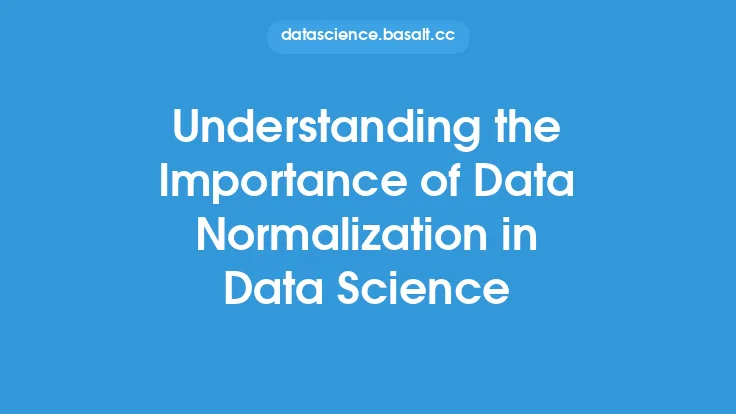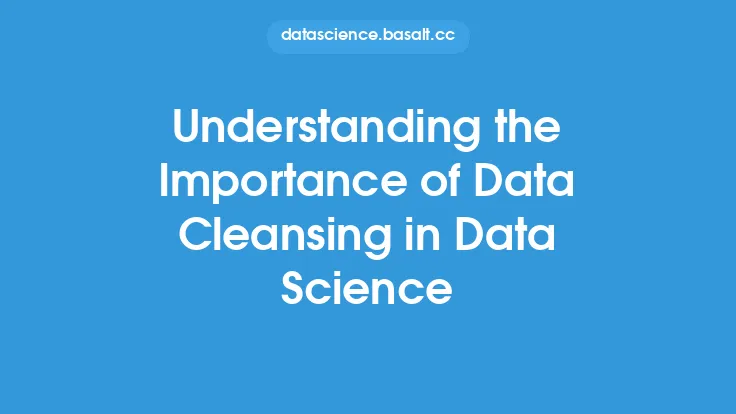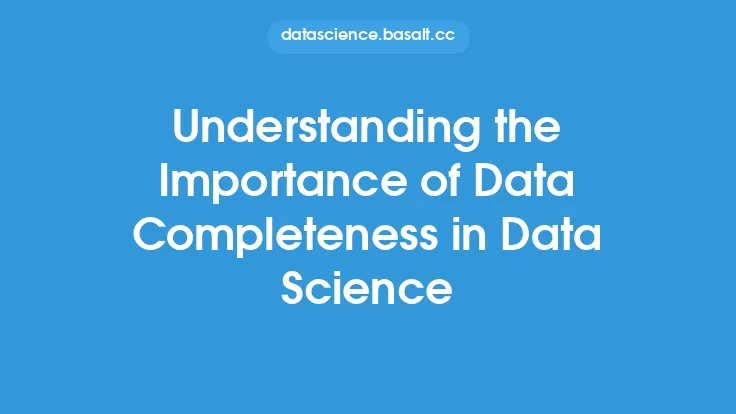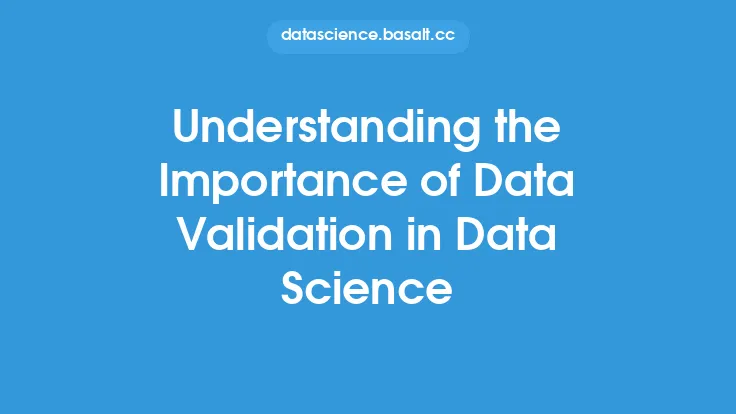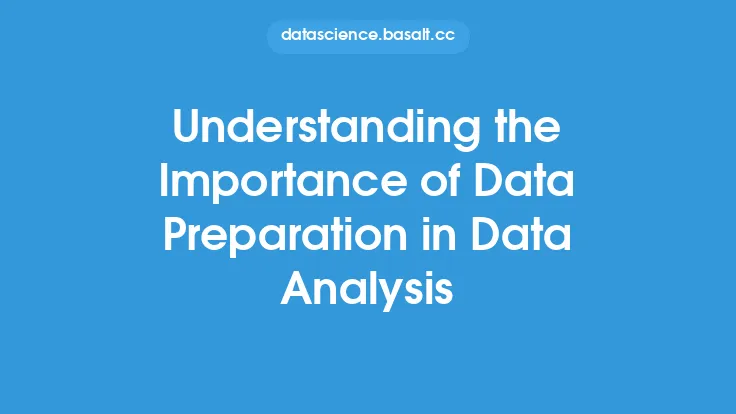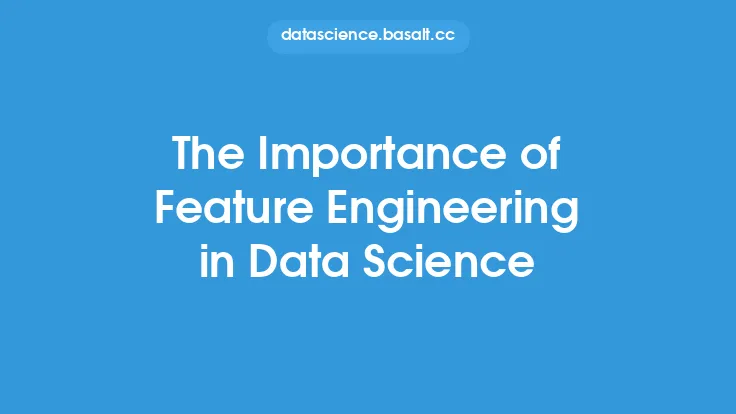Data integrity is a fundamental concept in data science that refers to the accuracy, completeness, and consistency of data. It is a critical aspect of data quality that ensures data is reliable, trustworthy, and fit for use. In the context of data science, data integrity is essential for making informed decisions, identifying trends, and predicting outcomes. In this article, we will delve into the importance of data integrity in data science, its key components, and the techniques used to ensure data integrity.
What is Data Integrity?
Data integrity refers to the state of data being accurate, complete, and consistent. It involves ensuring that data is free from errors, inconsistencies, and inaccuracies. Data integrity is not just about the data itself, but also about the processes and systems used to collect, store, and manage data. It requires a comprehensive approach that involves data validation, data cleansing, and data normalization. Data integrity is essential for ensuring that data is reliable and trustworthy, which is critical for making informed decisions in data science.
Key Components of Data Integrity
There are several key components of data integrity, including:
- Accuracy: Data accuracy refers to the degree to which data reflects the true value or state of the phenomenon it is intended to represent. Accurate data is essential for making informed decisions and identifying trends.
- Completeness: Data completeness refers to the degree to which data includes all the necessary information. Complete data is essential for ensuring that analysis and models are comprehensive and accurate.
- Consistency: Data consistency refers to the degree to which data is consistent across different sources and systems. Consistent data is essential for ensuring that analysis and models are reliable and trustworthy.
- Validity: Data validity refers to the degree to which data is valid and relevant. Valid data is essential for ensuring that analysis and models are meaningful and useful.
Techniques for Ensuring Data Integrity
There are several techniques used to ensure data integrity, including:
- Data validation: Data validation involves checking data for errors and inconsistencies. It can be performed using various techniques, such as data type checking, range checking, and format checking.
- Data cleansing: Data cleansing involves identifying and correcting errors and inconsistencies in data. It can be performed using various techniques, such as data normalization, data transformation, and data imputation.
- Data normalization: Data normalization involves transforming data into a standard format. It can be performed using various techniques, such as min-max scaling, z-score normalization, and logarithmic transformation.
- Data quality metrics: Data quality metrics involve measuring the quality of data using various metrics, such as accuracy, completeness, and consistency. These metrics can be used to identify areas for improvement and track progress over time.
Data Integrity in Data Science
Data integrity is essential for data science, as it ensures that data is reliable and trustworthy. In data science, data integrity is critical for:
- Machine learning: Machine learning algorithms rely on high-quality data to learn patterns and make predictions. Poor data integrity can lead to biased models and inaccurate predictions.
- Data visualization: Data visualization relies on accurate and complete data to create meaningful and informative visualizations. Poor data integrity can lead to misleading or inaccurate visualizations.
- Statistical analysis: Statistical analysis relies on accurate and complete data to identify trends and patterns. Poor data integrity can lead to inaccurate or misleading results.
Best Practices for Ensuring Data Integrity
There are several best practices for ensuring data integrity, including:
- Data governance: Data governance involves establishing policies and procedures for managing data. It can help ensure that data is accurate, complete, and consistent.
- Data quality monitoring: Data quality monitoring involves tracking data quality metrics over time. It can help identify areas for improvement and track progress over time.
- Data validation and cleansing: Data validation and cleansing involve checking data for errors and inconsistencies and correcting them. It can help ensure that data is accurate and complete.
- Data normalization and transformation: Data normalization and transformation involve transforming data into a standard format. It can help ensure that data is consistent and reliable.
Conclusion
Data integrity is a critical aspect of data quality that ensures data is accurate, complete, and consistent. It is essential for making informed decisions, identifying trends, and predicting outcomes in data science. By understanding the key components of data integrity and using techniques such as data validation, data cleansing, and data normalization, data scientists can ensure that data is reliable and trustworthy. By following best practices such as data governance, data quality monitoring, and data validation and cleansing, organizations can ensure that data integrity is maintained over time.
